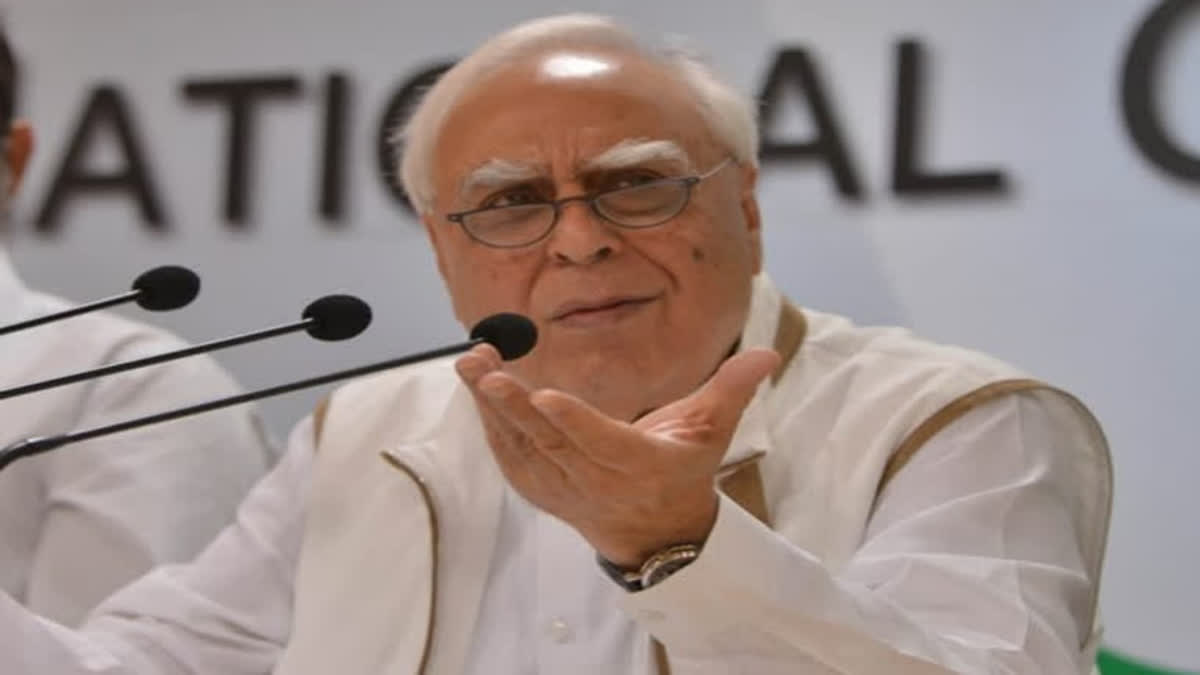New Delhi: Shortly before the Supreme Court's verdict on the abrogation of Article 370, Congress leader and senior advocate Kapil Sibal, who was one of the counsels for petitioners who had challenged the scrapping of Jammu and Kashmir's special status under Article 370 of the Constitution, had spelt out what many others had expected.
"Courts. Some battles are fought to be lost. For history must record the uncomfortable facts for generations to know. The right and wrong of institutional actions will be debated for years to come. History alone is the final arbiter of the moral compass of historic decisions," Kapil Sibal posted on the micro-blogging platform, X.
-
Courts
— Kapil Sibal (@KapilSibal) December 11, 2023 " class="align-text-top noRightClick twitterSection" data="
Some battles are fought to be lost
For history must record the uncomfortable facts for generations to know
The right and wrong of institutional actions will be debated for years to come
History alone is the final arbiter
of the moral compass of historic decisions
">Courts
— Kapil Sibal (@KapilSibal) December 11, 2023
Some battles are fought to be lost
For history must record the uncomfortable facts for generations to know
The right and wrong of institutional actions will be debated for years to come
History alone is the final arbiter
of the moral compass of historic decisionsCourts
— Kapil Sibal (@KapilSibal) December 11, 2023
Some battles are fought to be lost
For history must record the uncomfortable facts for generations to know
The right and wrong of institutional actions will be debated for years to come
History alone is the final arbiter
of the moral compass of historic decisions
Notably, Sibal, a senior lawyer of the Supreme Court, appeared in the court to fight against the verdict on Ram Mandir in Ayodhya and petitions against the ban on Triple Talaq.
In a landmark judgment, the Supreme Court on Monday upheld the Centre's decision to abrogate Article 370 and also advocated for the restoration of Jammu and Kashmir's statehood at the earliest, with elections mandated by September 30 the following year. The five-judge Constitution Bench, led by Chief Justice DY Chandrachud and including Justices Sanjay Kishan Kaul, Sanjiv Khanna, BR Gavai, and Surya Kant, delivered the verdict on petitions challenging the revocation of Jammu and Kashmir's special status.
Earlier this year, during the Article 370 hearings, Sibal had emphasised the unprecedented nature of converting a state into a Union Territory, expressing concerns about the historical implications.
Opponents of the Article 370 repeal argued that since the term of the Jammu and Kashmir Constituent Assembly ended in 1957, the provision could not have been scrapped. They contended that with the constituent assembly extinct, Article 370 acquired a permanent status. In contrast, the Centre maintained that its decisions adhered to the legal framework, contributing to the mainstreaming of Jammu and Kashmir, reducing terrorism, and fostering development.
More from our coverage on Article 370
- Landmark judgment | SC upholds abrogation of Article 370, directs ECI to conduct elections in J&K by Sept 2024
- 'Disappointed but not disheartened': Regional J&K political parties react to SC's verdict on Article 370
- Resounding declaration of hope: PM Modi hails SC verdict upholding abrogation of Article 370
- Article 370 and its abrogation: Timeline of J&K's special status from origin to scrapping



